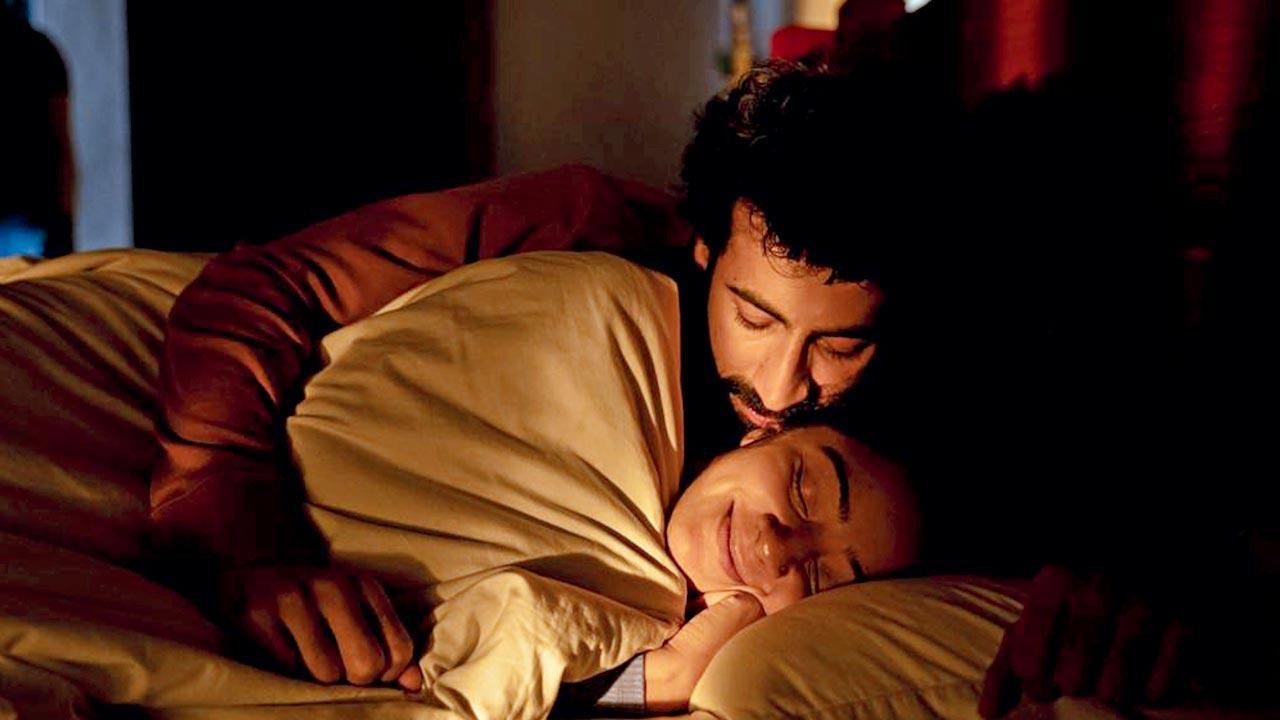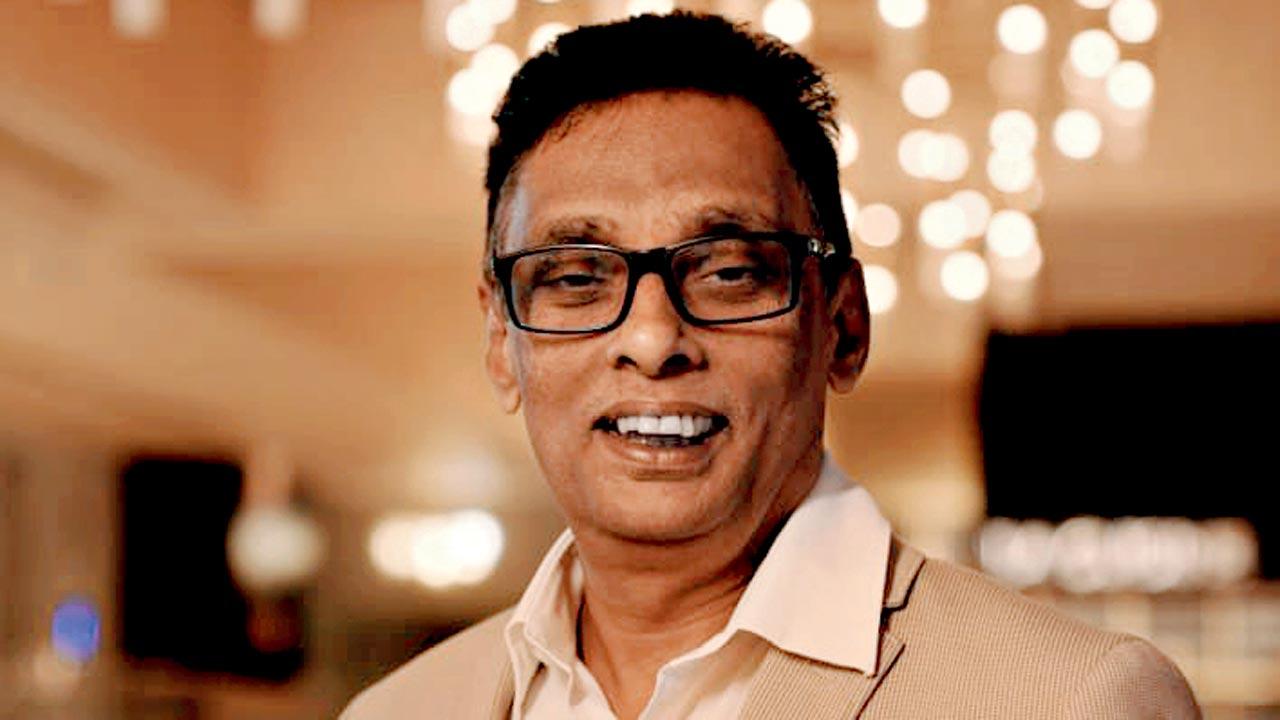Malayalam films are very popular in Sri Lanka, but no Malayalam film has recently released in theatres here-Prasanna Vithanage
9:06 AM
Posted by Fenil Seta

Paradise, winner of the Kim Jiseok Award for Best Film at the 2023 Busan Film Festival, is slated for a pan-India and worldwide release on June 28. The film sets the story of a Malayali couple’s travels through Sri Lanka against the backdrop of the country’s economic crisis of 2022
Sri Lankan filmmaker Prasanna Vithanage speaks to Sunday mid-day about his award-winning film geared for release next week, about the island country’s appetite for Malayalam cinema and how mythology becomes a way of putting the the past and present in dialogue
Sucheta Chakraborty (MID-DAY; June 16, 2024)
In between screenings of his new film at the Sydney Film Festival, Sri Lankan filmmaker Prasanna Vithanage speaks to Sunday mid-day about the making of Paradise, his first “Indian language” film produced by the Indian company Newton Cinema and presented by Mani Ratnam’s Madras Talkies, and with Indian leads and crew members, including cinematographer Rajeev Ravi and editor A Sreekar Prasad. Indian support for the film came at a time when the inflation rate in Sri Lanka stood at a staggering 64 per cent. Paradise enters Sri Lanka, literally and figuratively, through the perspective of two outsiders, unconnected with and indifferent to the country’s widespread economic turmoil, but ensures that it invades their lives in more ways than one. Edited excerpts:
Audiences in Sri Lanka will be watching the film for the first time. Are people going to the cinemas again? What kind of response are you expecting?
I must admit that the buying power of the middle class in Sri Lanka has been diminished. The theatre-attending numbers have come down compared to earlier times, but I am hopeful that Paradise will be seen by 1 lakh people at least in Sri Lanka. We have got 42 screens all over the island, so that is more than I had expected. Distributors and exhibitors are positive about the film because there is a buzz. That’s because Malayalam films are very popular in Sri Lanka, but no Malayalam film has recently released in theatres here. It’s a paradoxical situation. Pirated versions of movies are very popular. And Roshan [Mathew] and Darshana [Rajendran] also are popular in Sri Lanka. Plus, there is the novelty factor of a Sri Lankan director making a film in an Indian language [of course, there are Sinhala and Tamil, too].
You can win awards at festivals, but the theatrical release is the final litmus test. I have made this film hoping that it’ll touch spectators, so that has to be seen. I believe this is an audience-friendly film.
Given that you’ve had to contend with censorship in the past, are you worried in any way with this film?
Censorship in our part of the world [is of two types]. One has a face and the other doesn’t. The one with the face is the Public Performance Board [censor board of Sri Lanka]. Paradise has been passed in both countries without any cuts.
But then there is the [faceless] censorship of the mob that gets touchy about the way the filmmaker has depicted a country or a certain section. But the financial crisis and bankruptcy of Sri Lanka is a fact. No one can deny that there were shortages, that people were waiting in queues, and there was anarchy. I have not sensationalized anything. As a filmmaker, I have always tried to seek the truth behind the surface. I’ll stand by the film in any eventuality.
Why did you want to look at Sri Lanka’s economic crisis from an outsider’s perspective?
I wanted the main characters of this film to be indifferent to their surroundings. Sri Lankans at that time weren’t going anywhere. Even local tourism was not happening because there was a fuel crisis. Fuel was being supplied only to foreign tourists. But it is more than that. [The idea was to see whether those] who don’t have any connection to the crisis and are not even bothered by it could have a life-changing moment when faced with it. [The film] is about a man who’s upwardly mobile, who is ambitious and thinks that these social ills—the poverty, the injustice that is happening around him—will not affect him. But as a filmmaker, I’m saying, ‘you are living a lie. One day, s*** will hit the fan’.
You have spoken about how mythology is a big tourism industry. There is a strong sense of the exploitative nature of tourism in your film.
The mythology of The Ramayana is exploited not just by tourists, but also by politicians in both countries. The Ramayana may not be history, but it has a place in history. In Sri Lankan politics, there is talk of descending from Ravana, and then in parts of India, Rama is so important. So, there are many narratives among the modern people of Sri Lanka and India, too, regarding this mythology, and my film is about how history is always a dialogue between the past and the present. There is also the idea that modern life with its ambitions is such that instead of enjoying something for oneself, there is a need to show others that we are having fun. There is also a middle-class consumerist attitude where there is desire to exploit a place.
If you see people in buses or trains in Mumbai, Delhi or Colombo, people are glued to their mobile phones. We are forgetting ourselves. We are forgetting the dialogue with our inner selves. It has become a secondary thing. It’s because we want to achieve so many things in life. The mobile phone is so important because we are [always] waiting for something. I’m making a comment about how material things have become our God even while we are pretending to go on Ramayana tours.

This entry was posted on October 4, 2009 at 12:14 pm, and is filed under
Censor Board,
Darshana Rajendran,
Interviews,
Paradise,
Prasanna Vithanage,
Prasanna Vithanage interview,
Roshan Mathew,
Sri Lanka
. Follow any responses to this post through RSS. You can leave a response, or trackback from your own site.
Subscribe to:
Post Comments (Atom)
Post a Comment